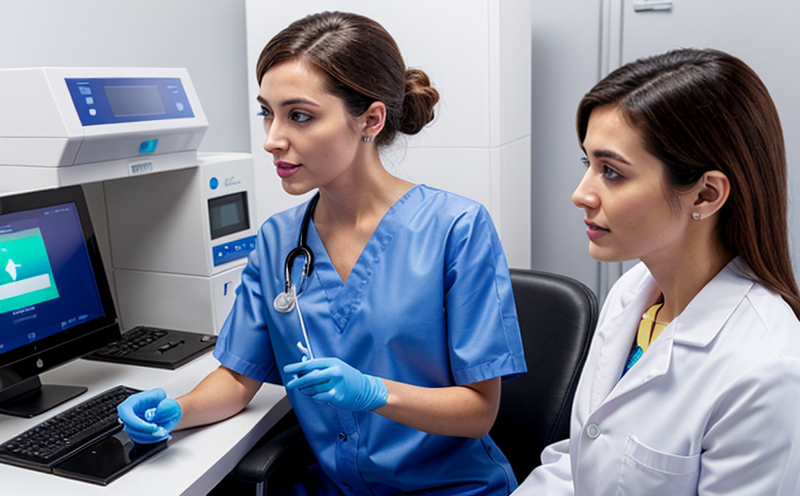PRRSV (Porcine Reproductive and Respiratory Syndrome Virus) Molecular Testing
The Porcine Reproductive and Respiratory Syndrome Virus (PRRSV), a member of the Arterivirus family, is one of the most economically significant pathogens affecting swine production worldwide. PRRSV causes reproductive failure in sows and respiratory disease in piglets, leading to substantial losses for the pork industry. The virus has an extensive range of strains, each with varying pathogenicity, making accurate and timely diagnosis critical for effective management.
Our laboratory offers advanced molecular testing services specifically designed to identify PRRSV through nucleic acid detection methods such as Real-Time PCR (RT-PCR). This service is essential for pig producers, veterinarians, research institutions, and diagnostic labs looking to prevent, control, and manage outbreaks. Our expertise lies in providing precise diagnostics that enable targeted interventions, reducing the spread of infection within herds.
PRRSV molecular testing involves several key steps: specimen collection from affected pigs, RNA extraction, reverse transcription if necessary, amplification via RT-PCR, and final detection using real-time fluorescent techniques. Our lab ensures that every step adheres to international standards (ISO 15189) for accuracy and reliability.
Our service includes comprehensive data analysis and reporting tailored to the specific needs of our clients. This report not only confirms the presence or absence of PRRSV but also provides detailed information about viral load, strain identification, and potential risks associated with different strains. Our team works closely with clients to interpret results and provide actionable insights for herd management.
For quality assurance, we follow strict protocols outlined in ISO 15189 and other relevant standards. These guidelines ensure that our tests maintain high levels of precision and accuracy. Additionally, we participate in proficiency testing programs organized by recognized bodies such as the World Organization for Animal Health (OIE) to validate our methodologies.
The importance of PRRSV molecular testing cannot be overstated. Early detection allows for prompt isolation and treatment measures, minimizing the impact on breeding herds and growing stock. By leveraging cutting-edge technology, we contribute significantly to maintaining biosecurity standards in swine production facilities.
Scope and Methodology
The scope of our PRRSV molecular testing service encompasses a wide range of applications within the clinical and healthcare sector. Primarily focused on pig health, this test serves as an indispensable tool for veterinarians, researchers, and producers aiming to understand and combat the effects of PRRSV.
Our methodology involves collecting swab samples from affected pigs or environmental samples if necessary. These specimens are then processed in our state-of-the-art laboratory using RT-PCR technology. The process begins with RNA extraction followed by reverse transcription when required, ensuring that only the viral nucleic acid is amplified during PCR amplification.
Real-time PCR detection systems allow for precise quantification of PRRSV presence and concentration within a sample. Fluorescent probes are used to detect specific sequences unique to various strains of PRRSV, enabling accurate differentiation between them. This approach enhances the reliability of our diagnostic results, providing valuable information about the nature of the infection.
Our laboratory adheres strictly to ISO 15189 standards for quality management systems in medical laboratories. These stringent protocols ensure that all procedures are conducted under controlled conditions, minimizing errors and maximizing accuracy. Regular participation in inter-laboratory comparisons helps us maintain proficiency and consistency across our tests.
Industry Applications
The application of PRRSV molecular testing extends beyond mere diagnosis; it plays a pivotal role in strategic herd management practices. Our service supports various stakeholders involved in swine production by offering critical insights into the health status and potential threats faced by their herds.
Veterinarians can rely on our test results to design effective treatment plans, particularly when dealing with reproductive issues or respiratory diseases linked to PRRSV. Research institutions benefit from detailed strain identification data which aids in understanding virulence factors and evolving resistance patterns among different strains of the virus.
Pig producers use this information for proactive measures like vaccination strategies targeting specific prevalent strains within their region. They also employ biosecurity protocols based on our findings, focusing on areas where PRRSV poses significant risks to productivity and profitability.
For diagnostic laboratories, our service provides standardized methods compliant with international standards (ISO 15189), ensuring consistent quality across diverse testing environments. This consistency is crucial for maintaining trust among clients who depend on reliable test outcomes to make informed decisions regarding their operations.
Competitive Advantage and Market Impact
In the competitive landscape of swine health diagnostics, our PRRSV molecular testing service stands out due to its precision, reliability, and comprehensive approach. By leveraging advanced technologies like Real-Time PCR coupled with fluorescent probes specific to various strains of PRRSV, we offer unparalleled accuracy in detecting this economically impactful virus.
Our adherence to ISO 15189 ensures that our services meet the highest industry standards for quality assurance. This commitment not only enhances client confidence but also sets us apart as a leader in providing robust solutions against PRRSV infections. Our active participation in OIE proficiency testing programs further reinforces this leadership position.
The impact of our service extends beyond individual farms and research institutions; it contributes significantly to broader industry efforts aimed at controlling the spread of PRRSV globally. By facilitating early detection and targeted intervention strategies, we help mitigate economic losses caused by this virus while promoting sustainable practices in swine production.





